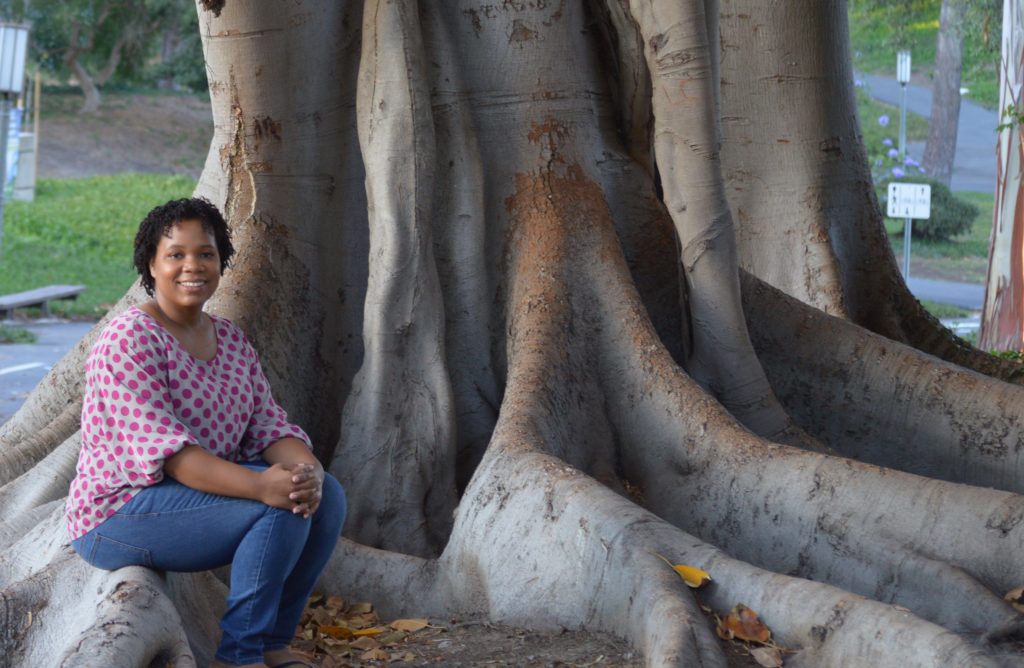
Last year the National Science Foundation awarded Michigan Tech alumna Tayloria Adams a prestigious Postdoctoral Research Fellowship in Biology. Adams earned her Master’s and PhD in Chemical Engineering here at Michigan Tech, graduating with nine scholarships, fellowships and awards, three peer-reviewed journal publications, a book chapter, and a patent—No. WO2015051372-A1, to be exact. Her doctoral research examined the dielectric behavior of human mesenchymal stem cells, for the purpose of cell sorting in microfluidic devices.
How did you come to Michigan Tech?
While on the hunt for a graduate school I was drawn to Michigan for two reasons: my mother lived in Detroit for a while before I was born, and affirmative action was started in the state. I applied to Michigan Tech and scheduled a visit. The environment was very welcoming, which got me hooked! Meeting Dr. Adrienne Minerick during the last year of my master’s degree was icing on the cake. My first interactions with her were in the classroom as I took her Advanced Reactive Systems course. I enjoyed her teaching style. She put a lot of effort into giving meaningful lectures and keeping students engaged. I looked into her research and I was very interested in dielectrophoresis, especially its use in studying red blood cells. The rest is history!
“I am passionate about three things: healthcare-related research, minority student success in STEM, and social justice. These areas are my calling.”
– Tayloria Adams
What was the most challenging aspect of your studies?
Research. There is a huge learning curve when entering a new research field. Learning how to design experiments effectively and accepting that there is no such thing as a perfect experiment are both great challenges. Something will always go wrong, but working through it to still collect the necessary data is what builds character and improves research skills.
What have you done since graduation?
I worked in the Michigan Tech Center for Diversity and Inclusion (CDI) for one year after graduation, as the outreach coordinator. That year gave me the opportunity to grow as a mentor and advocate for underrepresented minority students. I am now conducting postdoctoral research in the Department of Neurology at the University of California, Irvine, in Lisa Flanagan’s lab, studying neural stem and progenitor cells (NSPCs) and their therapeutic potential. NSPCs are desirable because they form the three cell types of the central nervous system, astrocytes, neurons, and oligodendrocytes. However, one challenge is that NSPCs are grown as heterogeneous mixtures and we have little information regarding, which cells are best for neural repair. I’m using dielectrophoresis, an electrokinetic separation technique, as a method to target and enrich specific cells NSPCs. My goal is to effectively sort and characterize them.
You worked hard to educate and engage diverse people about the challenges facing underrepresented students at Michigan Tech. How would you describe the difference you made?
Working at Michigan Tech’s CDI provided me an outlet to engage in important conversations and be a part of the work. CDI was also very supportive of my research. I was able to practice research presentations in the center, use the space as a writing sanctuary when I was completing my dissertation, and almost all of the staff was present at my dissertation defense, which was immensely important to me. One of the best parts of my graduate education is that my daughter Aiyanna experienced college life at the undergraduate and graduate level before reaching college age. She’s learned about important campus resources such as CDI, and I am confident that this exposure has played a part in preparing her for college. As a parent this is something I am very proud of and would consider a success. My greatest frustration was the decline I saw in the number of African American students enrolled at Michigan Tech during my time there. A second frustration is the representation in faculty members. Michigan Tech is a great institution but these are areas where growth would make a huge impact on the community. I would say the difference I’ve made so far is showing what’s possible; but there is much more work to be done.
To learn more about Dr. Adams’s research, visit tayloriaadams.com.